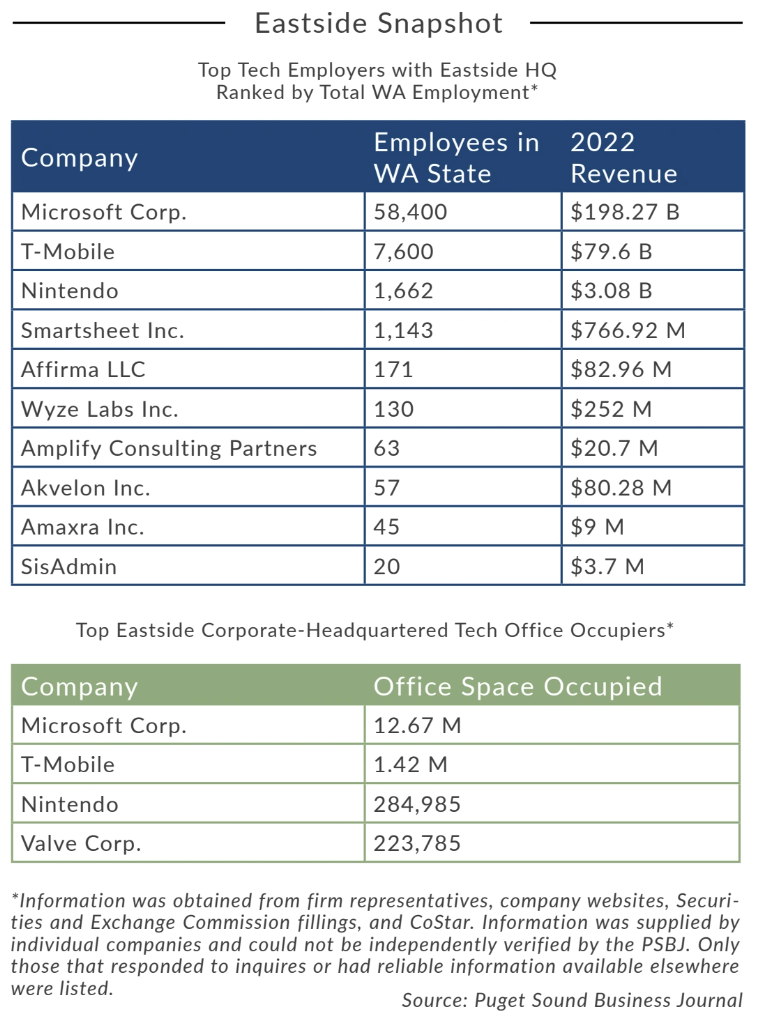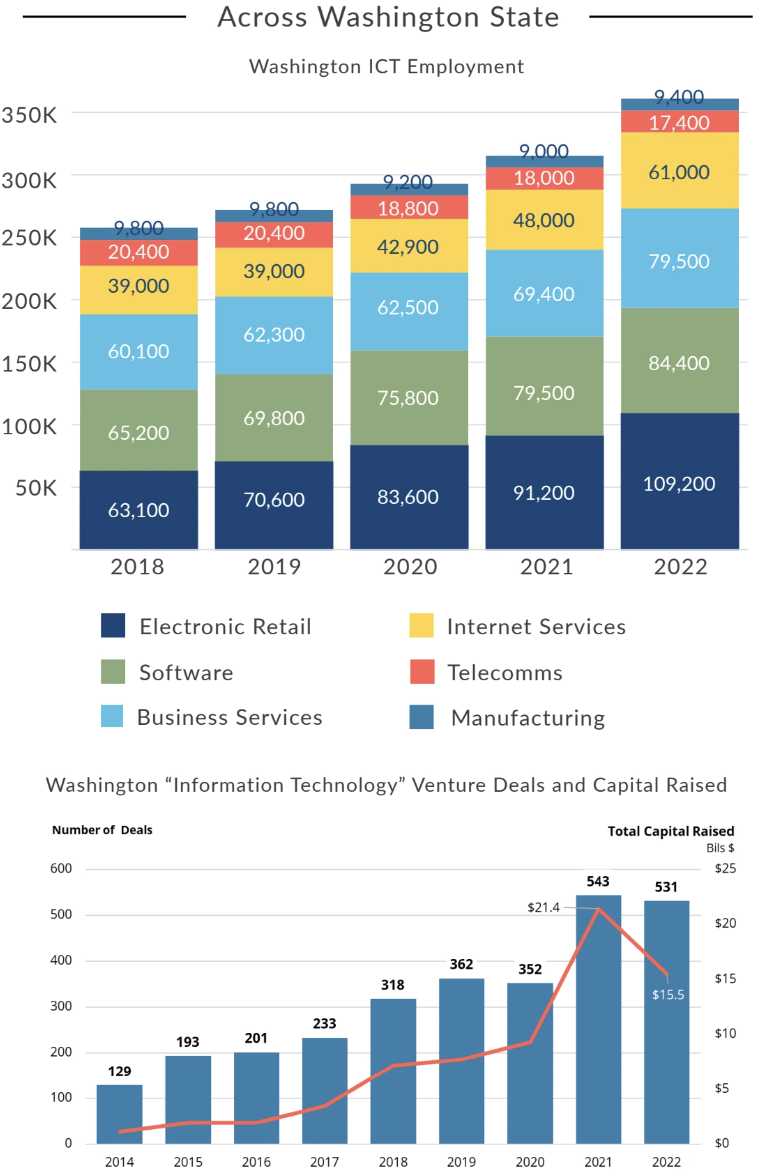Chamber releases 2023 Economic & Community Metrics guide
Each year, the Chamber puts together its "Economic & Community Metrics" guide as an accompaniment to our Economic Forecast Summit — check out the digital version of the guide here, take a peek at some of the key data included below, and keep an eye out for the event recording's release in the next few weeks.
Demographics:
For years, some of the country's most innovative companies have established roots on the Eastside, resulting in a group of diverse and vibrant communities.
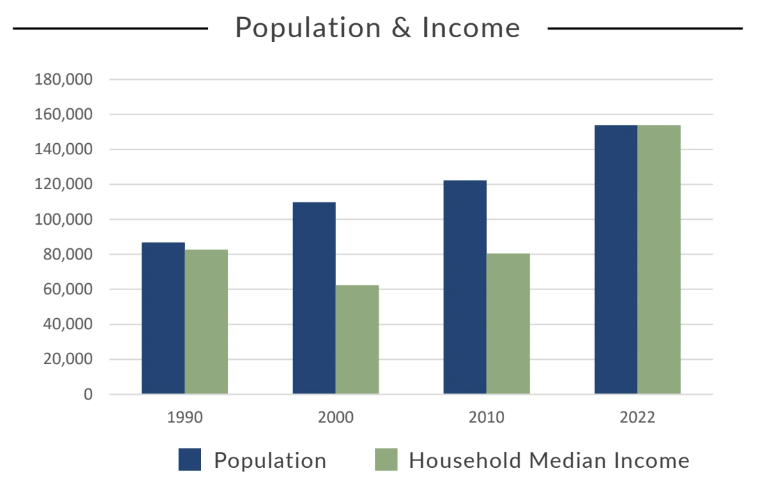
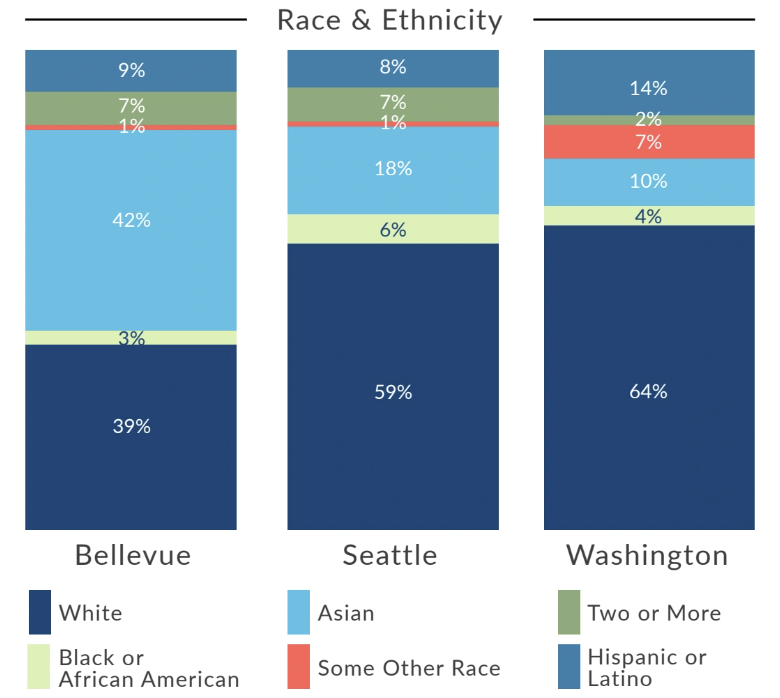
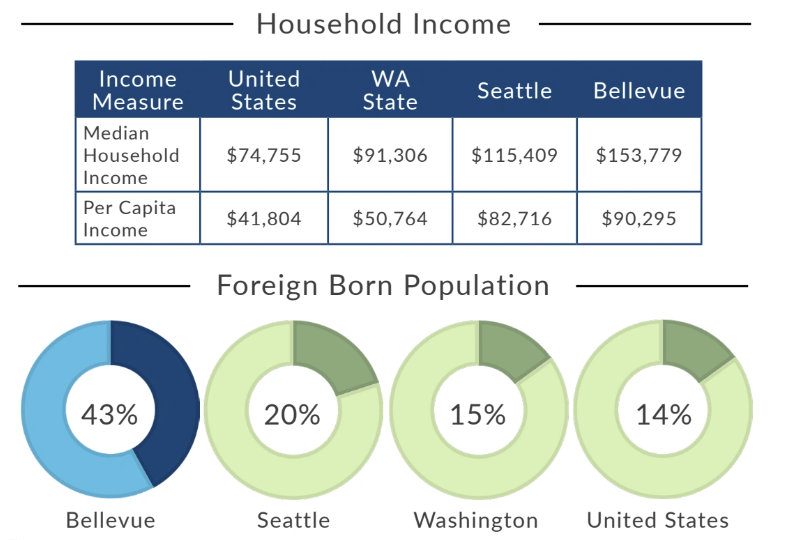
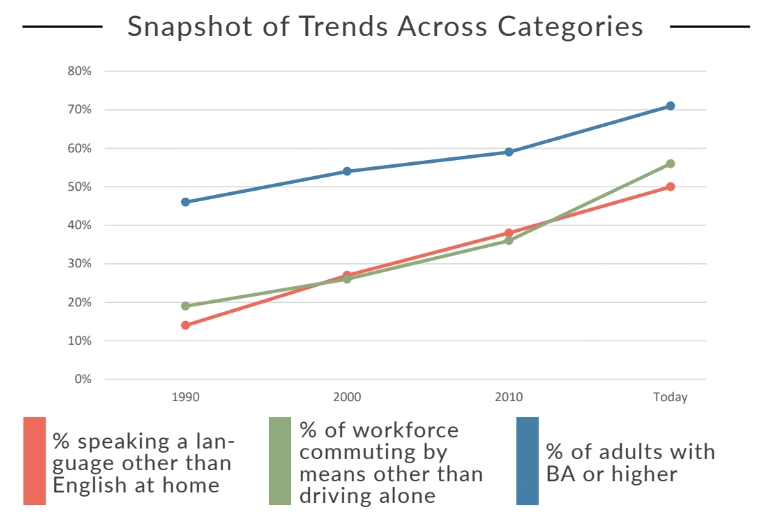
City of Bellevue:
The City of Bellevue has cemented itself as an innovative, data-driven, and people-first type of city. We are proud to have an engaged population, booming enterprise and travel, top-tier hospitality, and best of all, the infrastructure to back it.
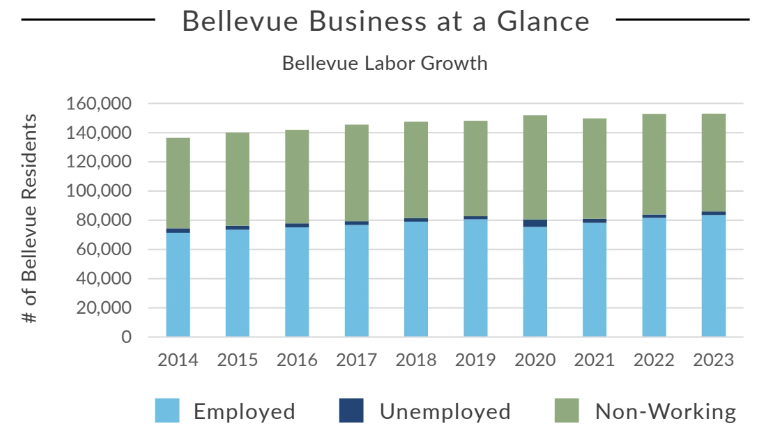
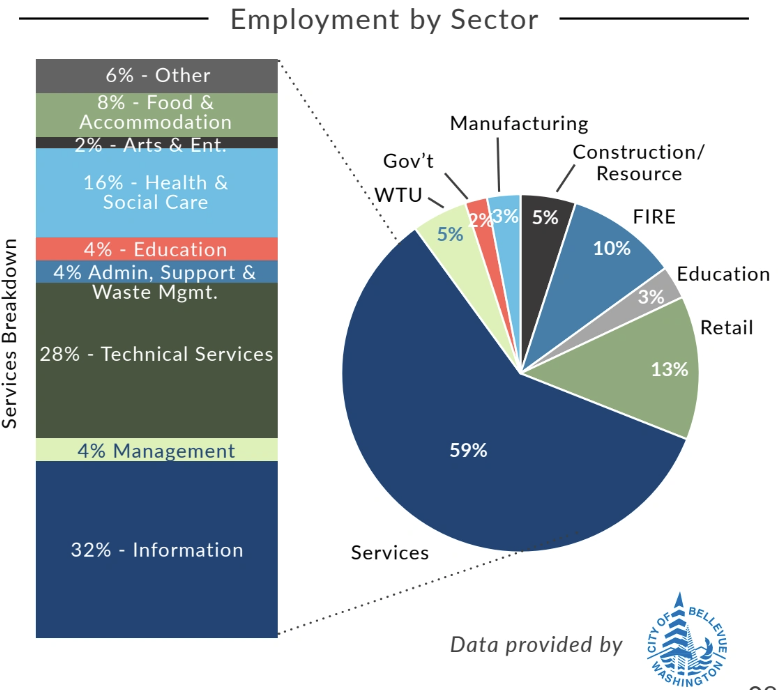
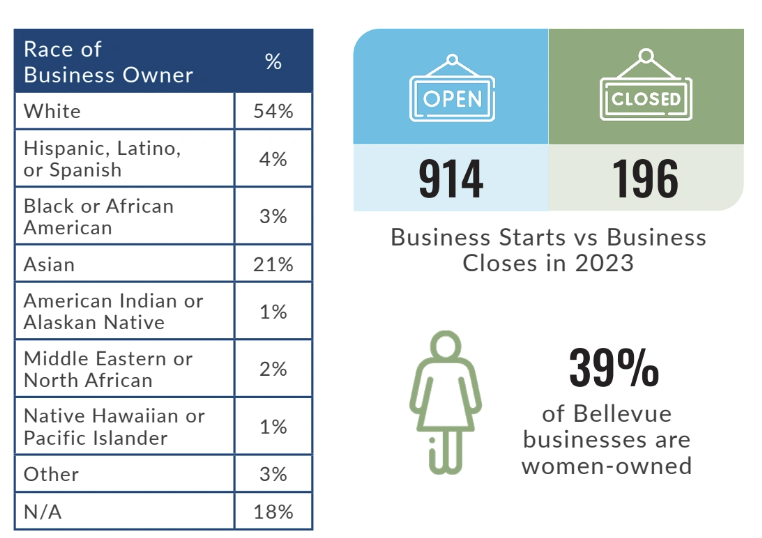
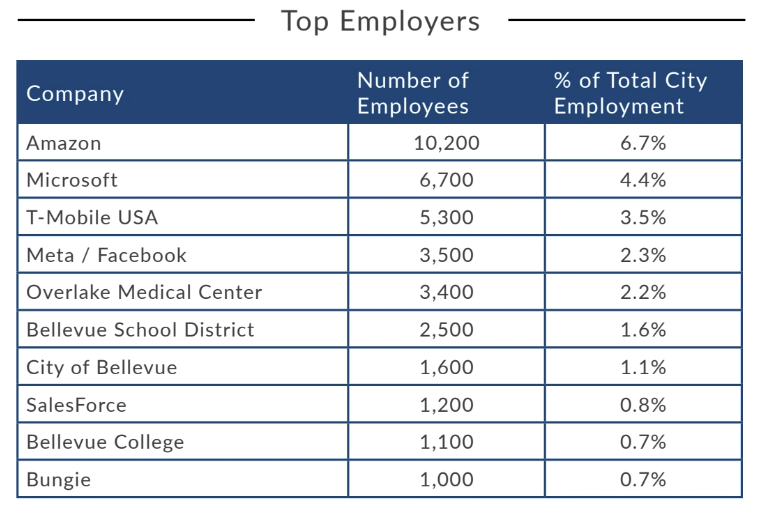
Eastside Businesses:
morning, the jet you flew on your recent flight, the video game you just played ... all began right here."
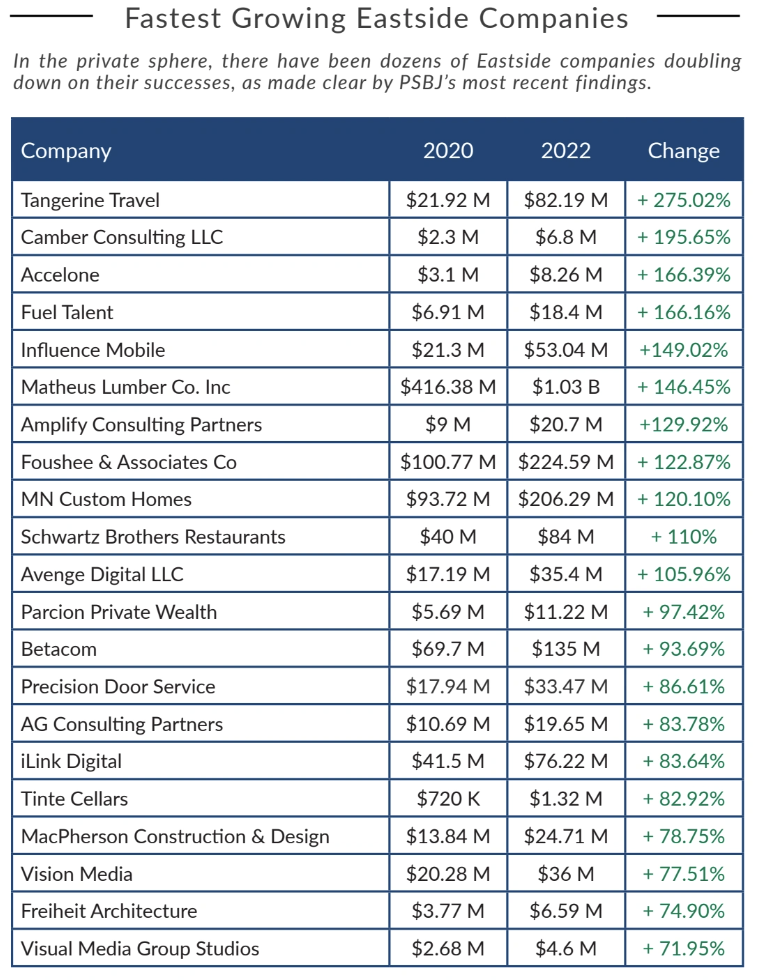
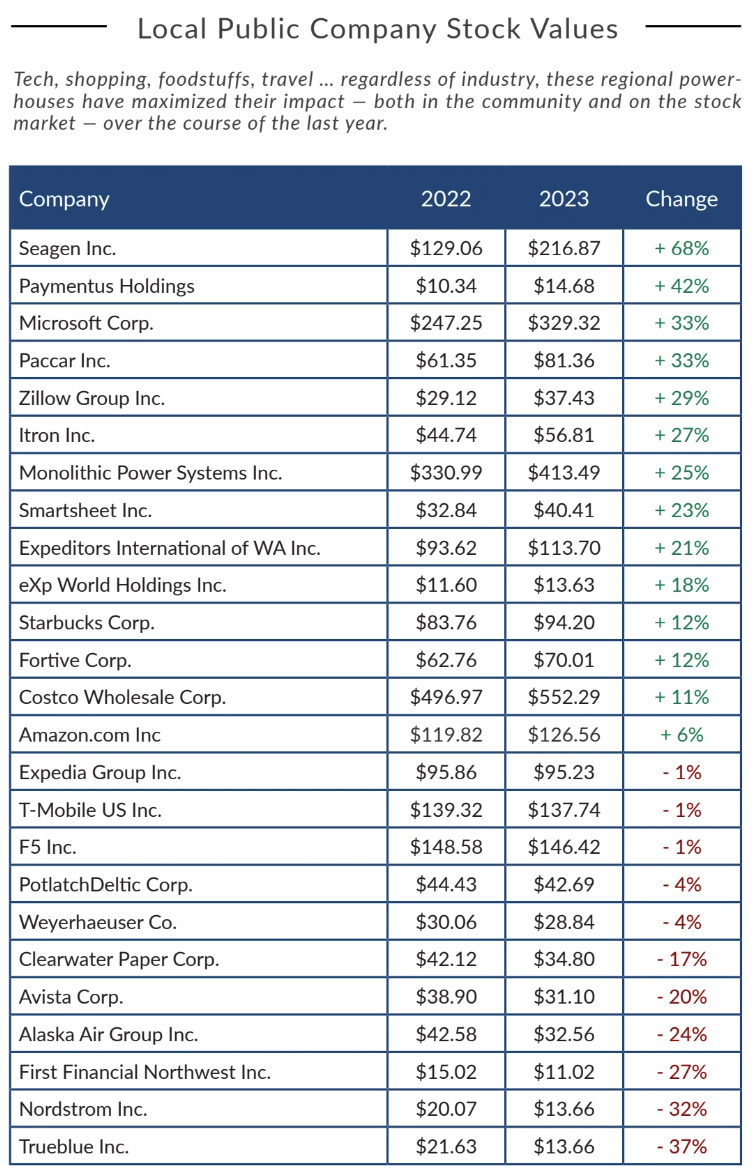
Washington State:
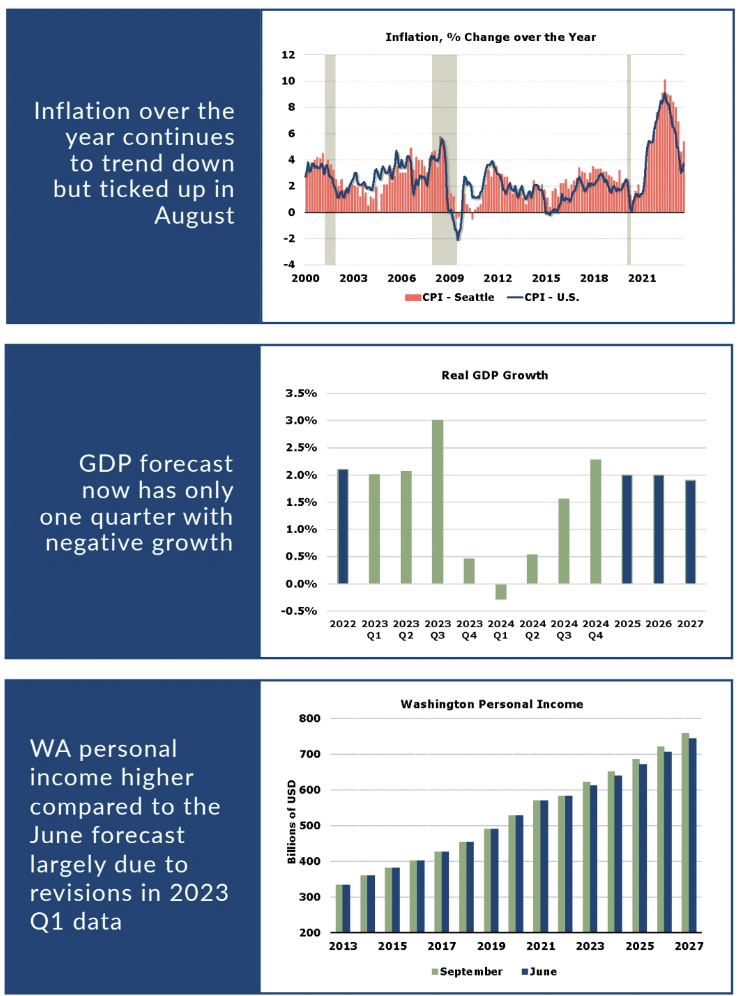
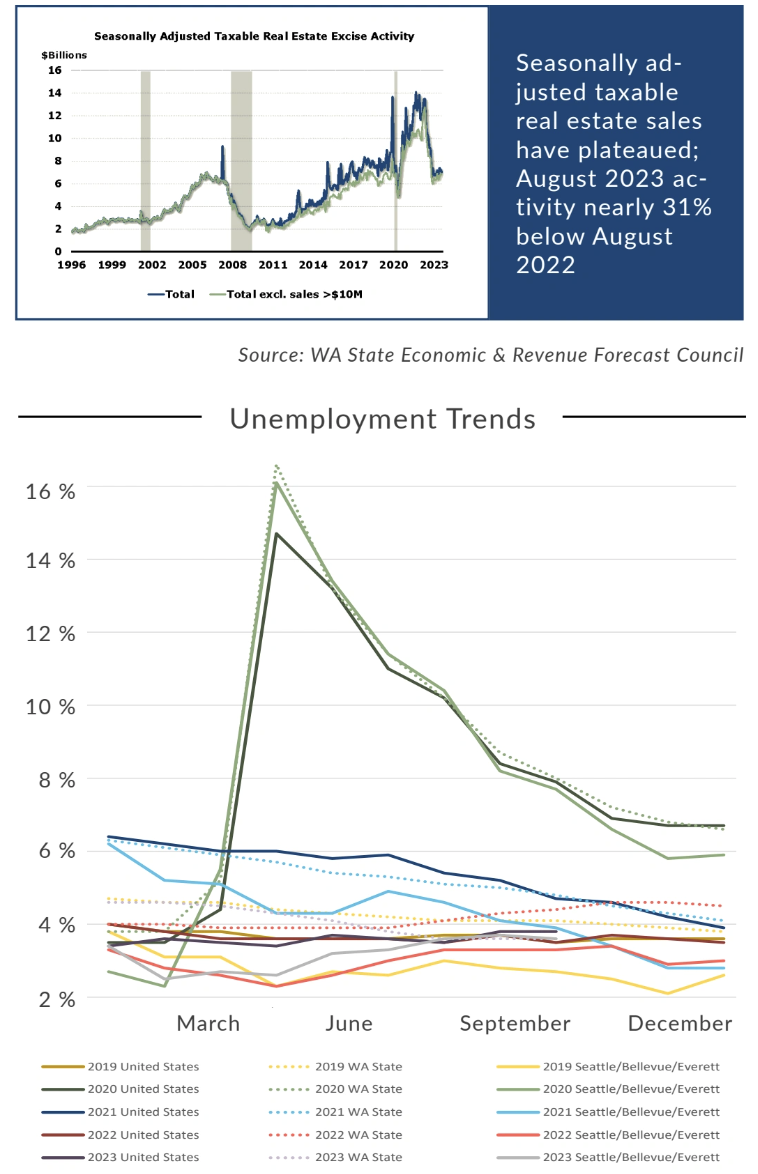
Hospitality:
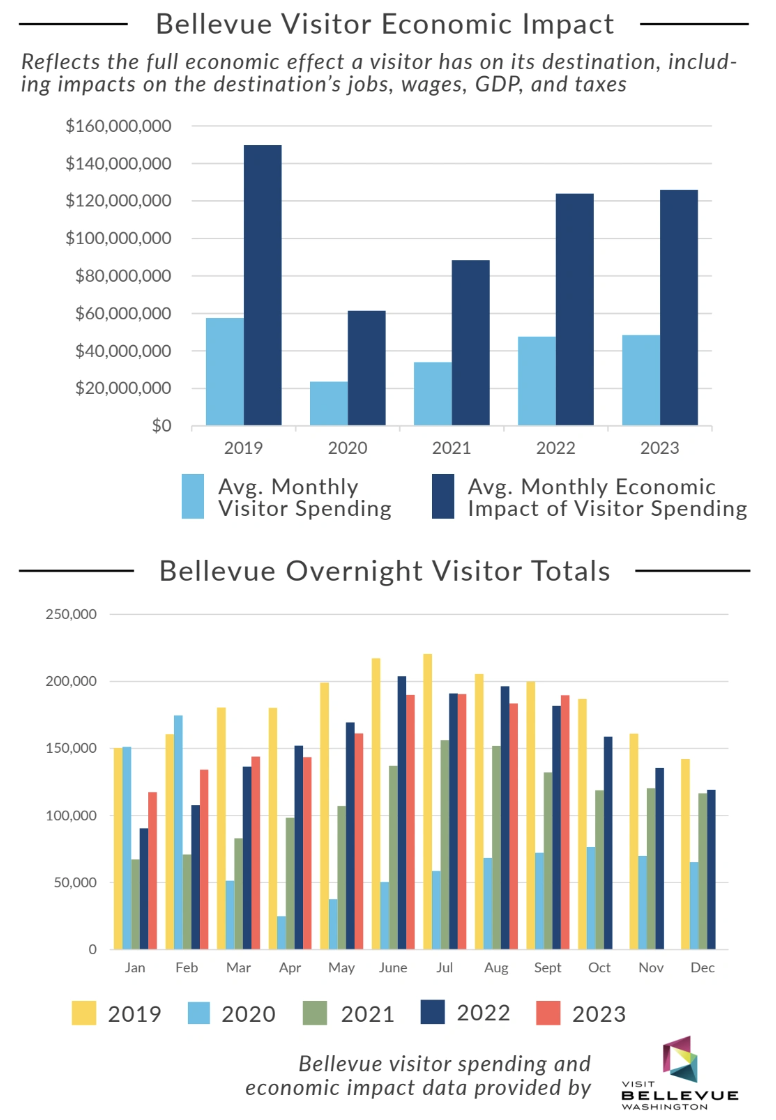
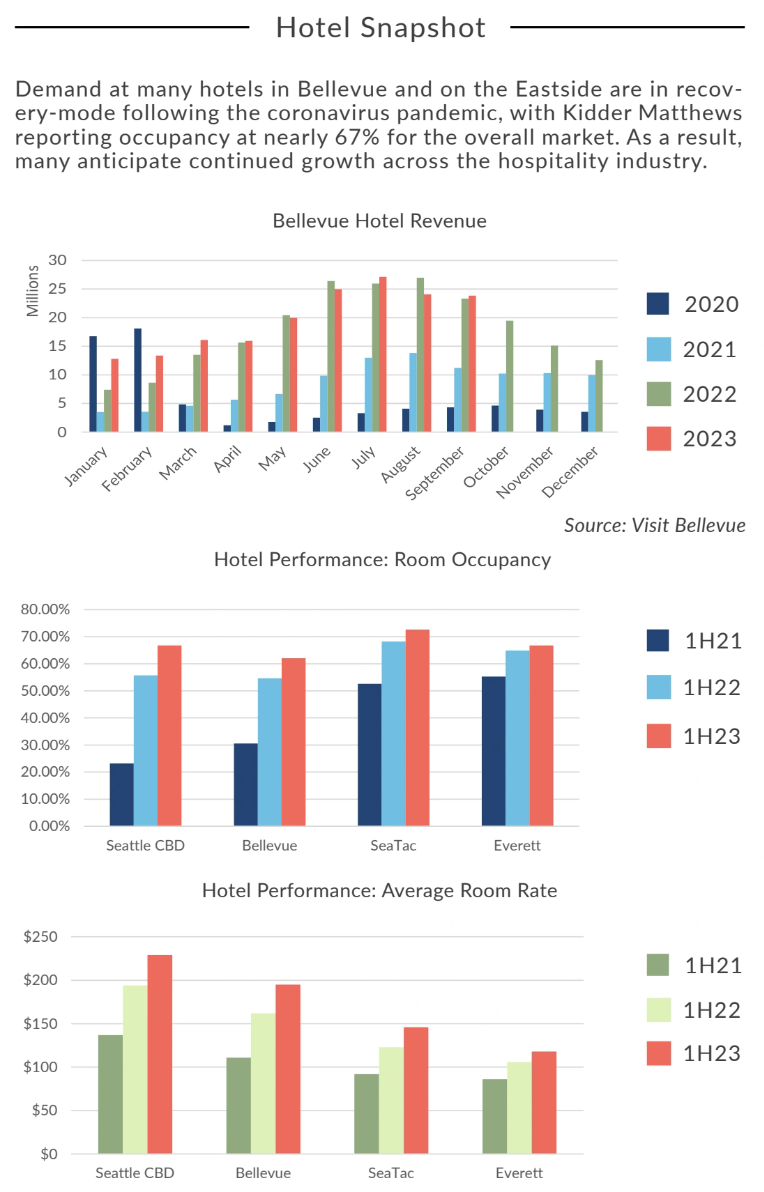
Mobility:
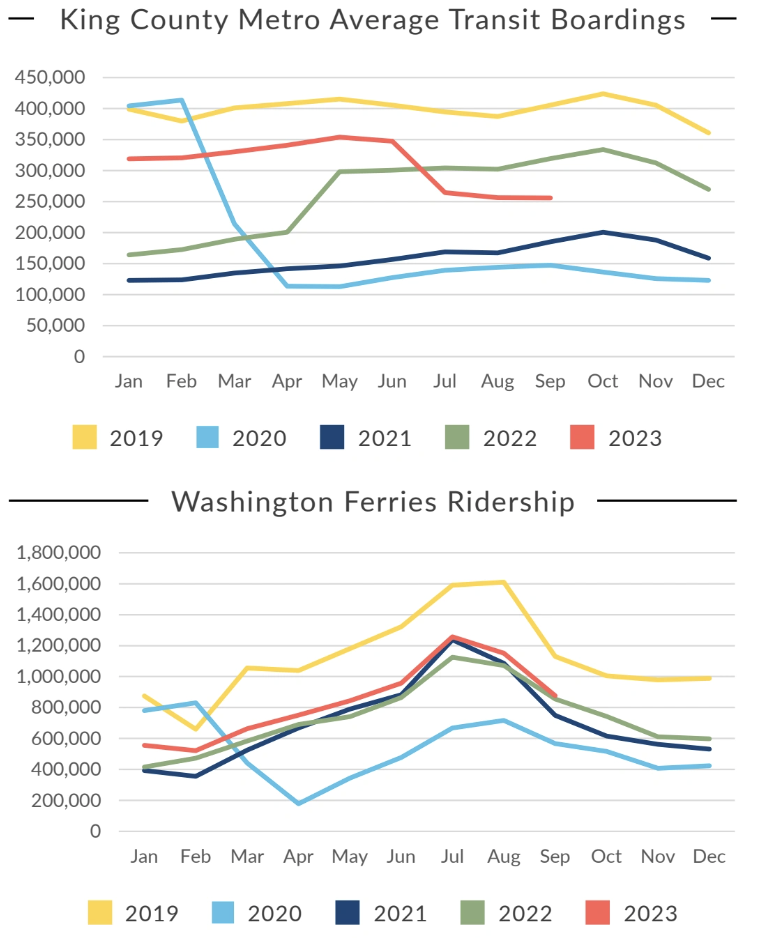
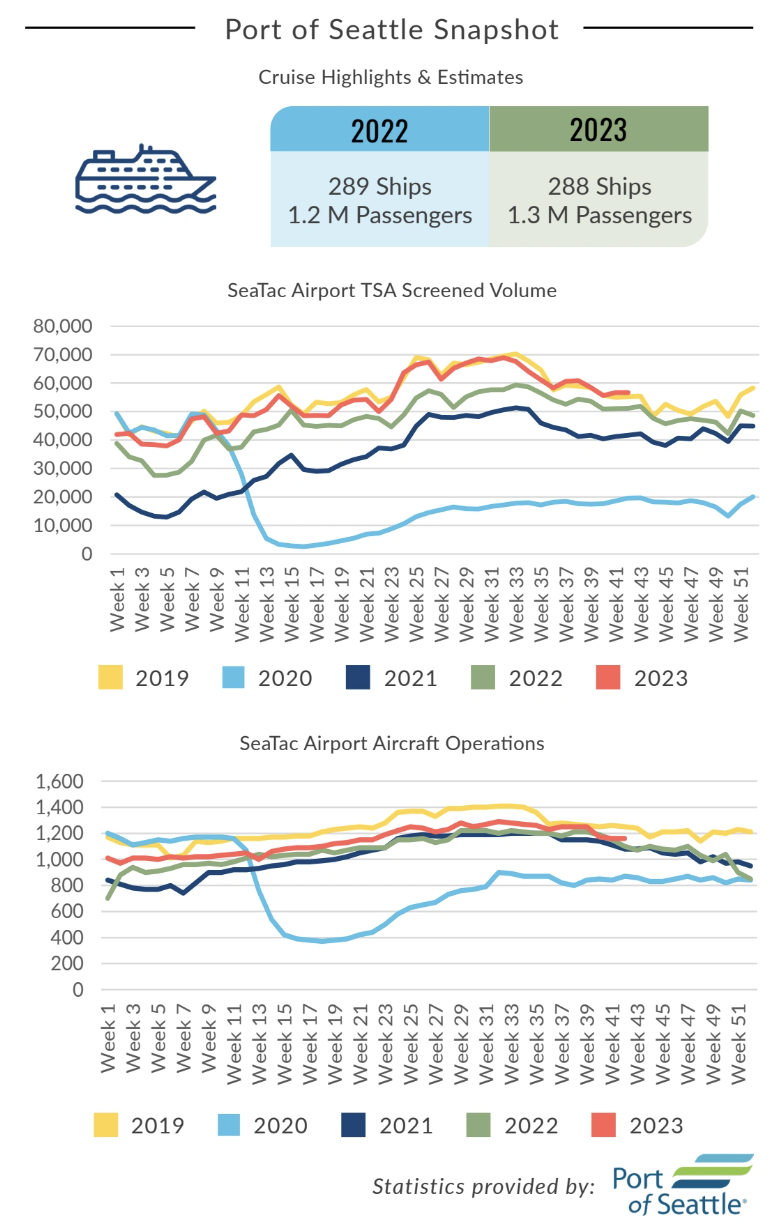
Trade:
The Northwest Seaport Alliance handled $70 billion of waterborne trade in 2022, but their data shows continued uncertainty for the manufacturing industries. International imports have experienced a big spike since August, with exports also increasing despite beginning and mid-year lows, yet autos have prevailed as the only cargo volumes increased since 2022.
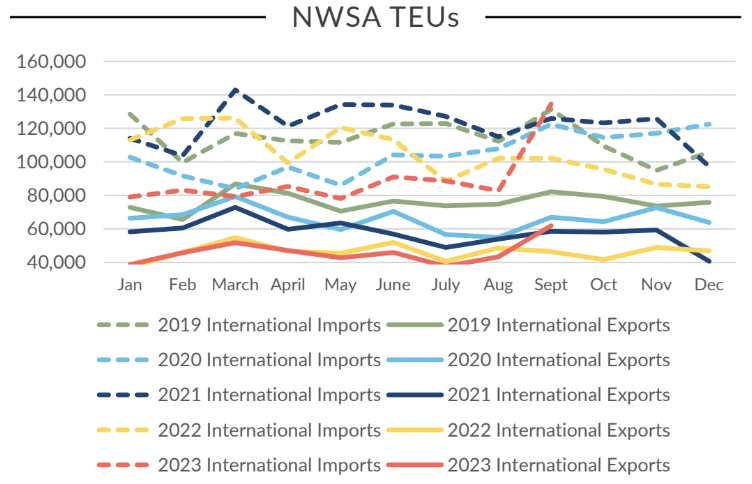
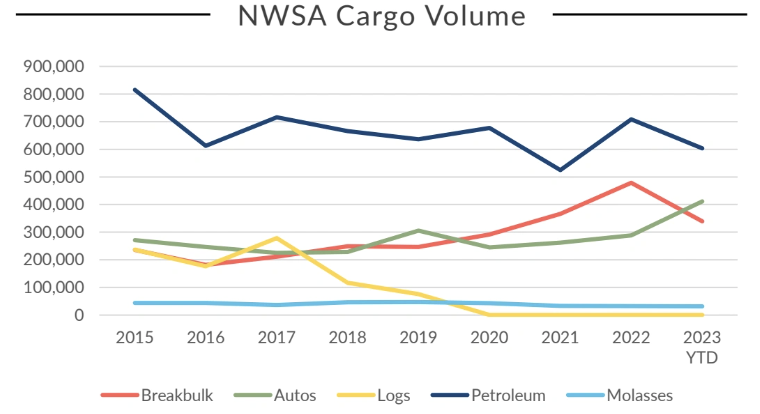
Bellevue Schools:
The Bellevue School District serves most of the city of Bellevue and the smaller surrounding communities of Clyde Hill, Medina, Hunts Point, Yarrow Point, and Beaux Arts. It also serves portions of Issaquah, Kirkland, Newcastle, Redmond, and unincorporated King County.
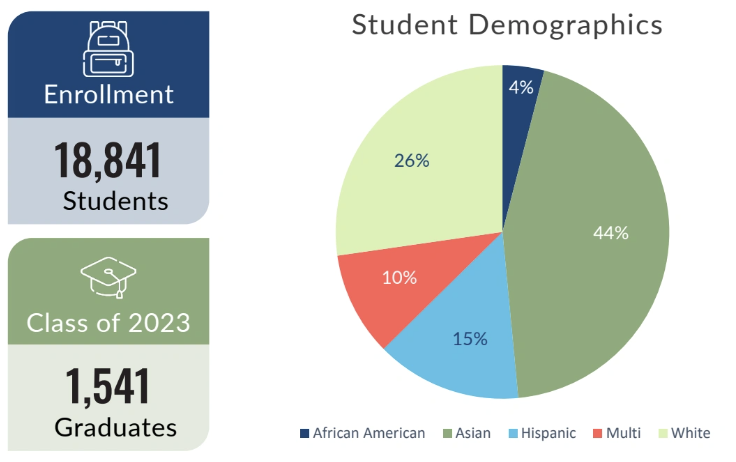

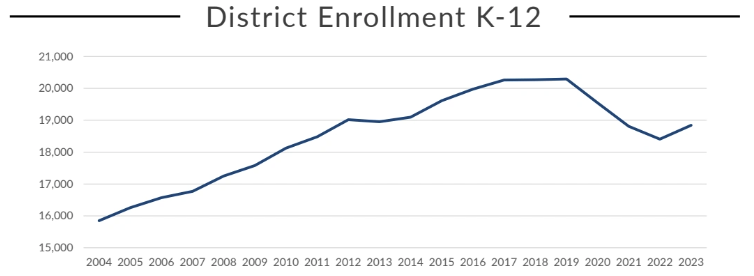
Healthcare:
Healthcare continues to be one of the most troubled industries post-pandemic, both due to the barriers for those receiving care — in terms of cost, access to care, and quality of care — and the burden that has been placed on those working in the system.
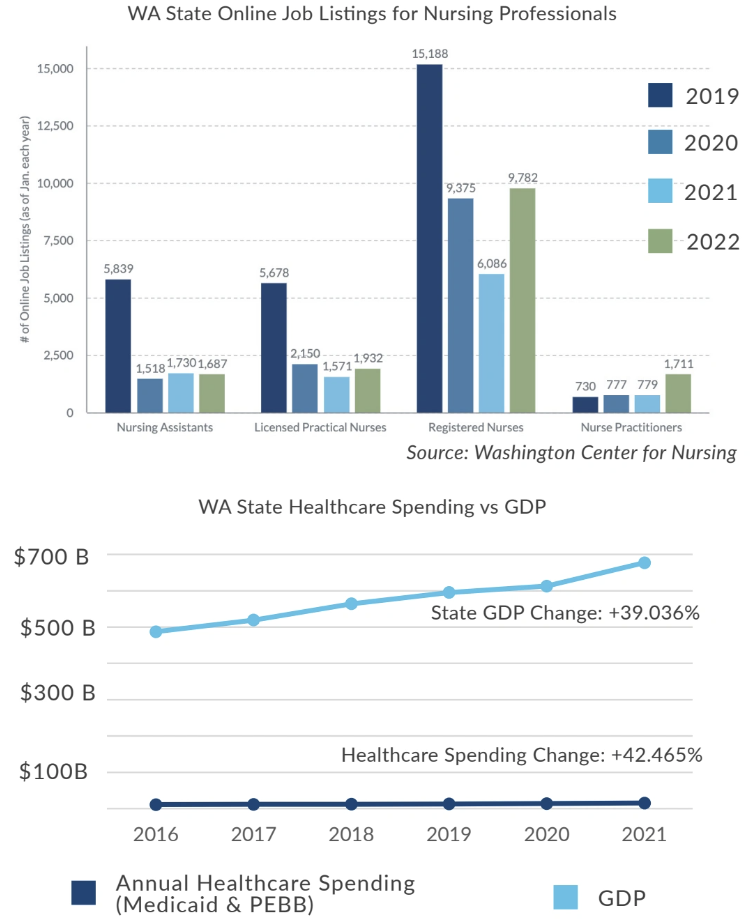
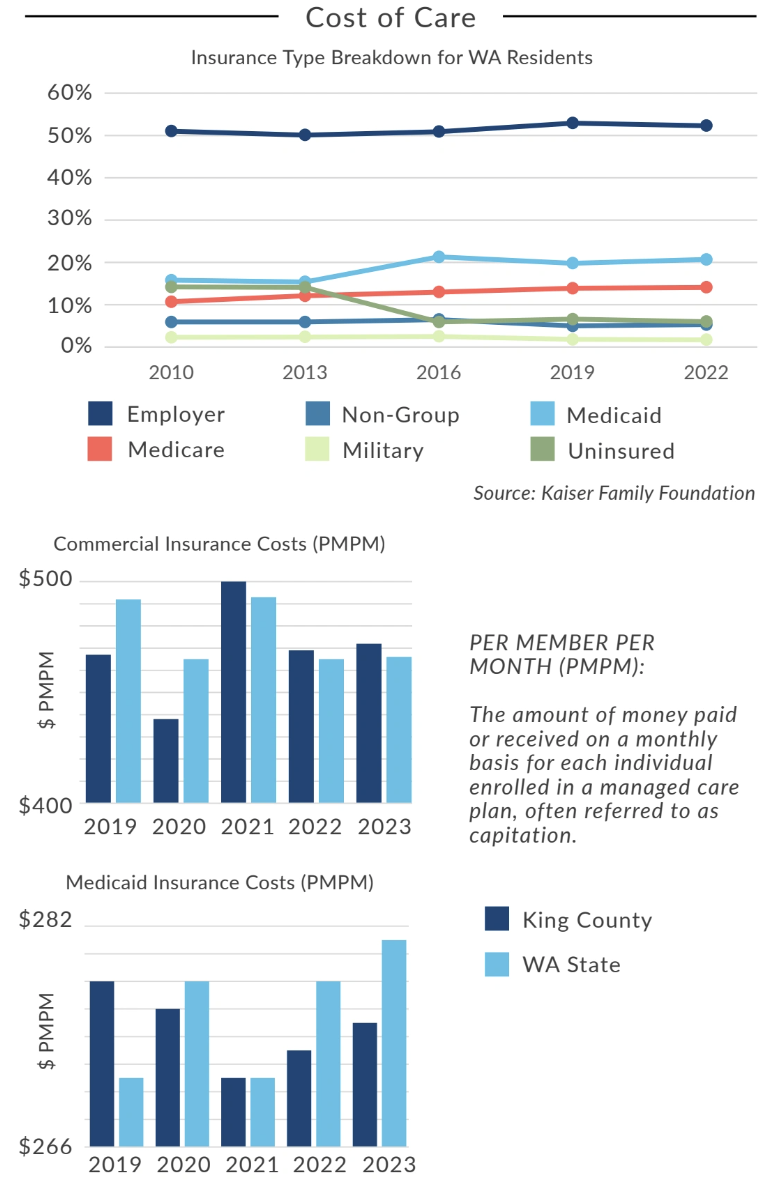
Housing:
Here in Bellevue, a measly 25% of the housing stock is considered affordable to households with moderate incomes (earning up to $93,000 for a 4-person household) and only 9% if affordable to low and very low income households.
This means that for the 10,500 low income households that live here, there are only 4,800 affordable units available.
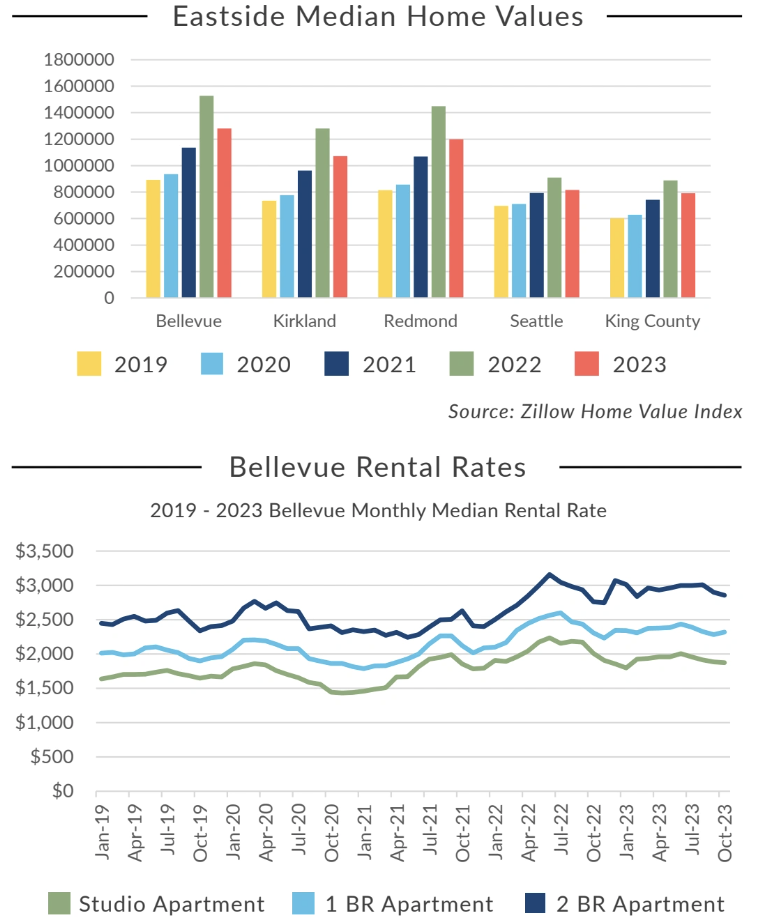
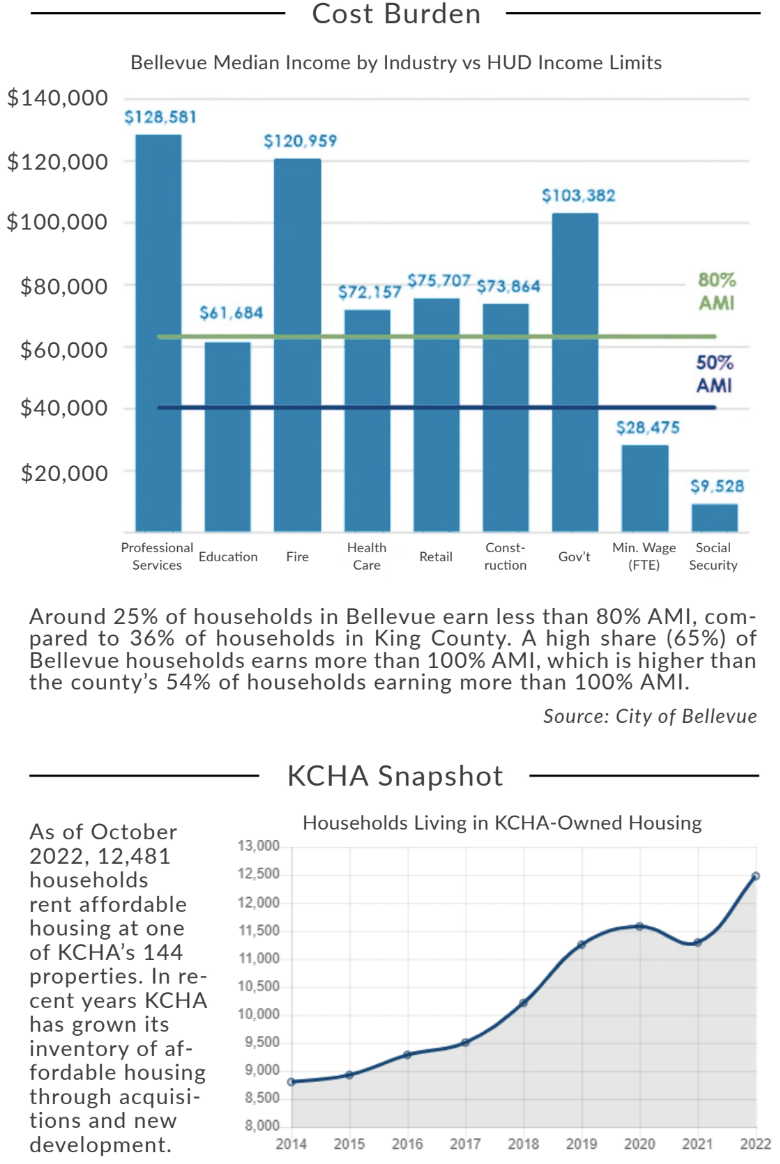
Technology:
